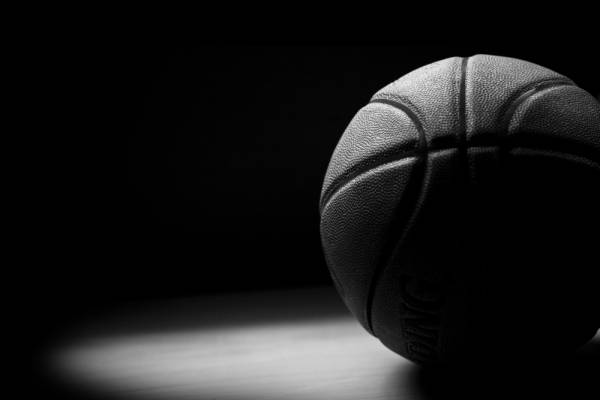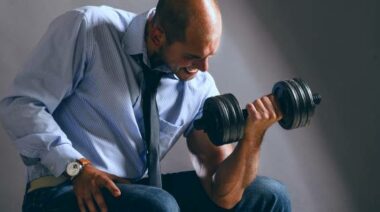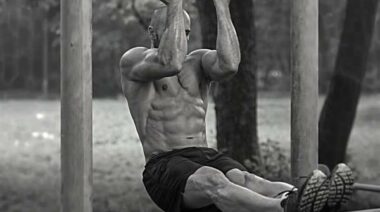I watch a lot of documentaries and I read a lot of biographies. Human beings are profoundly interesting and one of the best ways to explore what it means to be human is to study one. Lately I’ve found myself studying some brilliant and yet flawed people. Jim Morrison, David Foster Wallace, Todd Marinovich, and Chris Herren have been on my short list.
People are often paradoxical – brilliant and yet disturbed, talented and perfect in some ways, deeply flawed in others. Many we look up to as our heroes end up becoming villains, or sometimes the reverse is true. In reality, there are no one hundred percent heroes or villains, but simply human beings who are somewhere on the continuum of life – struggling in trying to find their way.
One such story of hero to villain, and then back again to hero, is that of former basketball star, Chris Herren. I recently saw the ESPN 30/30 documentary, Unguarded, on Herren, and was deeply moved by his story. No fancy narration or hyped up music, just Herren talking his way through his traumatic ordeal.
We celebrate the lives of our heroes and rightfully so. There are countless examples of heroes in day-to-day life as well as those who are seemingly larger than life. The artists and athletes we admire are people who create and inspire, expressing truth in the moment. This truth helps us all find deeper meaning and in many ways their expression makes us feel like they are expressing for us.
While these examples of ‘heroism’ are part of our daily existence, so are the flaws our heroes express. Those in the public eye also are put on a pedestal from which they sometimes fall. We’ve learned the best golfer in the world can also be a lousy husband. A leader for a cause can do so with passion, while at the same time neglecting his or her own family. Sometimes our heroes on the court are drug addicts off the court, like Chris Herren.
Herren was an incredibly gifted basketball player. He was the best player ever to come out of his town, Fall River, Massachusetts. Herren went from playing for his high school, Durfee High, to becoming one of the best players in college basketball. Ultimately he wound up playing for the team he idolized growing up, the famed and storied Boston Celtics.
 There was just one problem, Herren wasn’t necessarily happy or fulfilled in doing so. In fact, in order to perform at the highest level, Herren had to do so while high on drugs. The pressure of living up to such great expectations was far too much. So Herren coped the only way he knew how – by using drugs.
There was just one problem, Herren wasn’t necessarily happy or fulfilled in doing so. In fact, in order to perform at the highest level, Herren had to do so while high on drugs. The pressure of living up to such great expectations was far too much. So Herren coped the only way he knew how – by using drugs.
We’ve seen this story many times. Lawrence Taylor was perhaps the most dominant defensive player in the history of the NFL, and he played while high. But an addict, athlete or not, can only fool him- or herself for so long before the gig is up and the car drives right off that cliff. That fall is often severe and dramatic, and it doesn’t stop until the proverbial bottom is hit. One just hopes and prays that bottom represents a new beginning, versus the end. We all know plenty of examples of it turning out both ways.
In his fall from grace, Chris Herren threw away a career that was the envy of every aspiring basketball player in the country. In doing so Chris Herren became the villain. “How dare he throw away such talent?” one might ask. And here’s the rub: It was his to throw away and by facing his demons perhaps he discovered an even greater talent.
Being angry with those who are our heroes actually mirrors our own problems. Our reaction of anger and disappointment is a reflection of disappointment in ourselves. After hitting bottom and becoming the villain, Herren wound up choosing to lean right into the pain and he faced his demons. In doing so, there is perhaps a demonstration of a greater sense of heroism than he ever had playing basketball.
It is indeed a thing of beauty to watch a Michael Jordan or a Kobe Bryant move effortlessly and gracefully on a basketball court, but I wouldn’t necessarily call that heroic. To face the depths of one’s soul, to find one’s peace of mind, and then to help and inspire others – that is courage. That is heroism. I am deeply inspired by Herren’s story and his willingness to face the day. Addiction is a battle fought one day at a time and not necessarily a war won outright.
Herren has been sober since 2008 and fights on, but does so with a caution. Four years ago he was passed out behind a convenience store, high on crystal meth and heroin. This from a former Boston Celtic and at one point one of the top basketball prospects in the nation. He knows the bottom is only one street corner away.
 Athletes can often be seen as heroes, especially in our culture. The story of propelling one’s self to greatness through talent is something compelling to many of us. Being willing to put it all on the line for ones passion is seen as heroic. Many of our pubic figures in life, from community leaders, to artists and athletes, become our heroes, and some of them end up becoming villains. This is what happens when we anoint someone to save us, motivate us, and entertain us. They must maintain perfection or they end up disappointing us. Imagine the pressure of failing to live up to what your parents wanted you to be. Many of us can relate to that. Now imagine adding the expectations of your whole town, your state, your college, your city, and your nation. For some, such a pressure is a curse more so than a blessing.
Athletes can often be seen as heroes, especially in our culture. The story of propelling one’s self to greatness through talent is something compelling to many of us. Being willing to put it all on the line for ones passion is seen as heroic. Many of our pubic figures in life, from community leaders, to artists and athletes, become our heroes, and some of them end up becoming villains. This is what happens when we anoint someone to save us, motivate us, and entertain us. They must maintain perfection or they end up disappointing us. Imagine the pressure of failing to live up to what your parents wanted you to be. Many of us can relate to that. Now imagine adding the expectations of your whole town, your state, your college, your city, and your nation. For some, such a pressure is a curse more so than a blessing.
Chris Herren lost the fame and fortune that basketball would have brought him. He was once the beloved hero of his community for being the shining star and local boy made good. He fell from grace. In getting back up off the canvas, however, he became a much greater example of what it means to be human. He is a husband, father, and recovering drug addict. Most importantly, he takes each day to face his past and help other in the process as a mentor and a coach. That is a hero.
Photos courtesy of Shutterstock.






